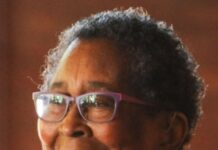 The City University of New York has launched a new website documenting the history of some of the earliest people of African descent in the Western Hemisphere. The online bilingual archive is called the First Blacks in the Americas/Los Primeros Negros en las Americas. It documents the earliest history of the African diaspora in what is now the Dominican Republic. Black people began to arrive in La Española with the first transatlantic expedition led by Christopher Columbus in 1492 and continued to do so throughout the sixteenth century, either as free individuals, as servants, or, mostly, as enslaved laborers.
The City University of New York has launched a new website documenting the history of some of the earliest people of African descent in the Western Hemisphere. The online bilingual archive is called the First Blacks in the Americas/Los Primeros Negros en las Americas. It documents the earliest history of the African diaspora in what is now the Dominican Republic. Black people began to arrive in La Española with the first transatlantic expedition led by Christopher Columbus in 1492 and continued to do so throughout the sixteenth century, either as free individuals, as servants, or, mostly, as enslaved laborers.
Called the “cradle of Blackness in the Americas,” by 1518 La Española had more Black slaves than White people. This was a century before the first Black indentured servants arrived in the English colonies in what is now the United States. Fifteen years later in 1533, there were four times as many Black slaves as White people in what is now the Dominican Republic.
According to the website “one of the main goals of First Blacks in the Americas is to contribute to filling the void that exists in Atlantic and New World Black studies by uncovering the recorded history of the first generations of blacks that lived in the continent in modern times, especially, though not exclusively, as it related to the first development of an early plantation economy on its territories.”
The website is a product of Dominican Studies Institute at the City University of New York.











This is brilliant! I am overjoyed and deeply moved by the sheer originality and meticulous attention to detail this website exemplifies! May this great work be utilized to spread these narratives to even wider audiences.
Jah love. This is a great idea, but the fact is that Columbus took the entire island which he called Hispaniola or Little Spain, the Western Side was ceded to the Spanish in 1697 at the Treaty of Wiswick. So, there was no DR at the time, it was all one island and that includes what is now Ayiti. or Haiti the name that the Taino ancestors called the place. I wish that you people would stop encouraging the Dominicans to continue with their ignorance that they are the first and the preferred group on the island. To the contrary, they are most likely members of the more recent arrivals from Europe and Africa. Blessed love.